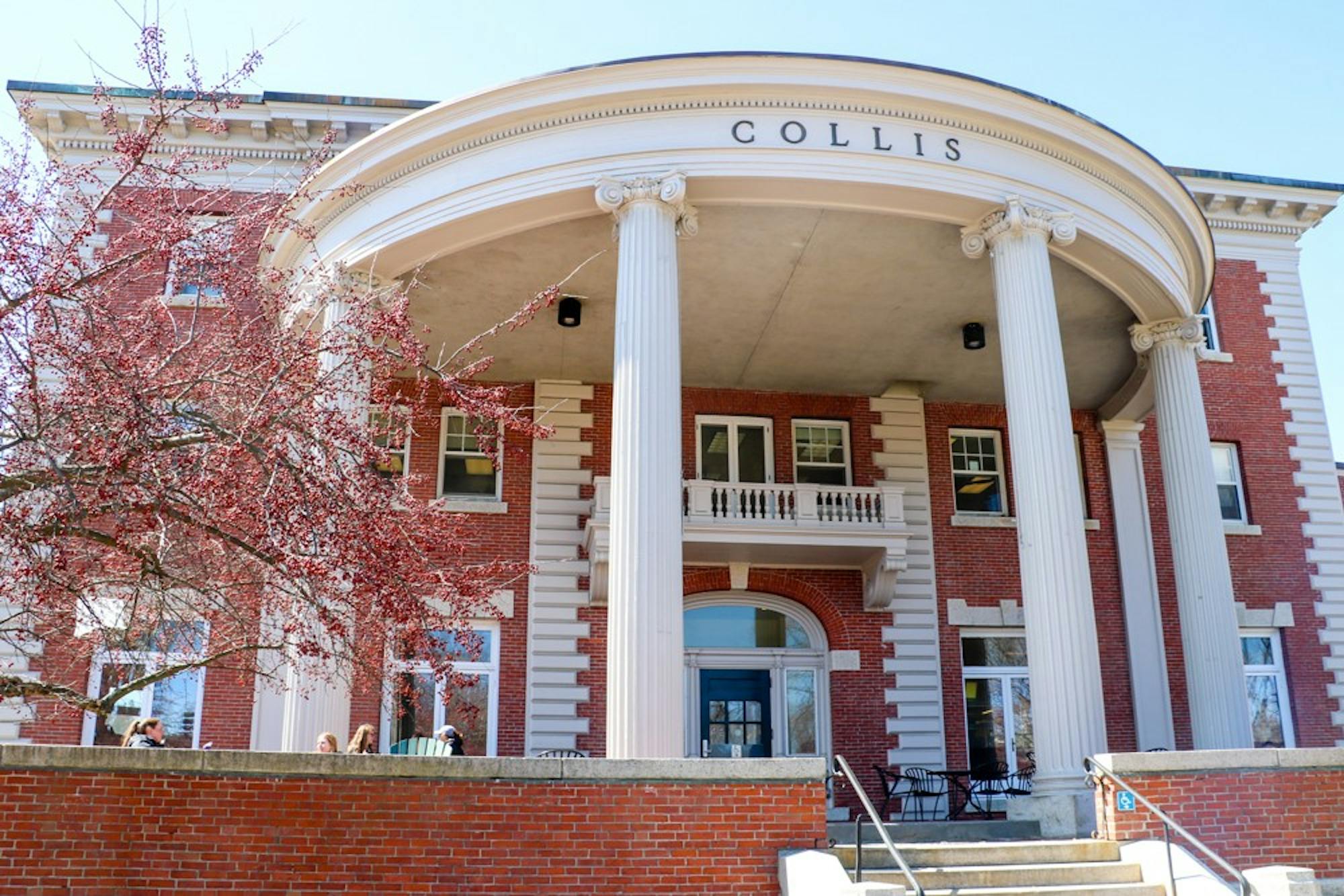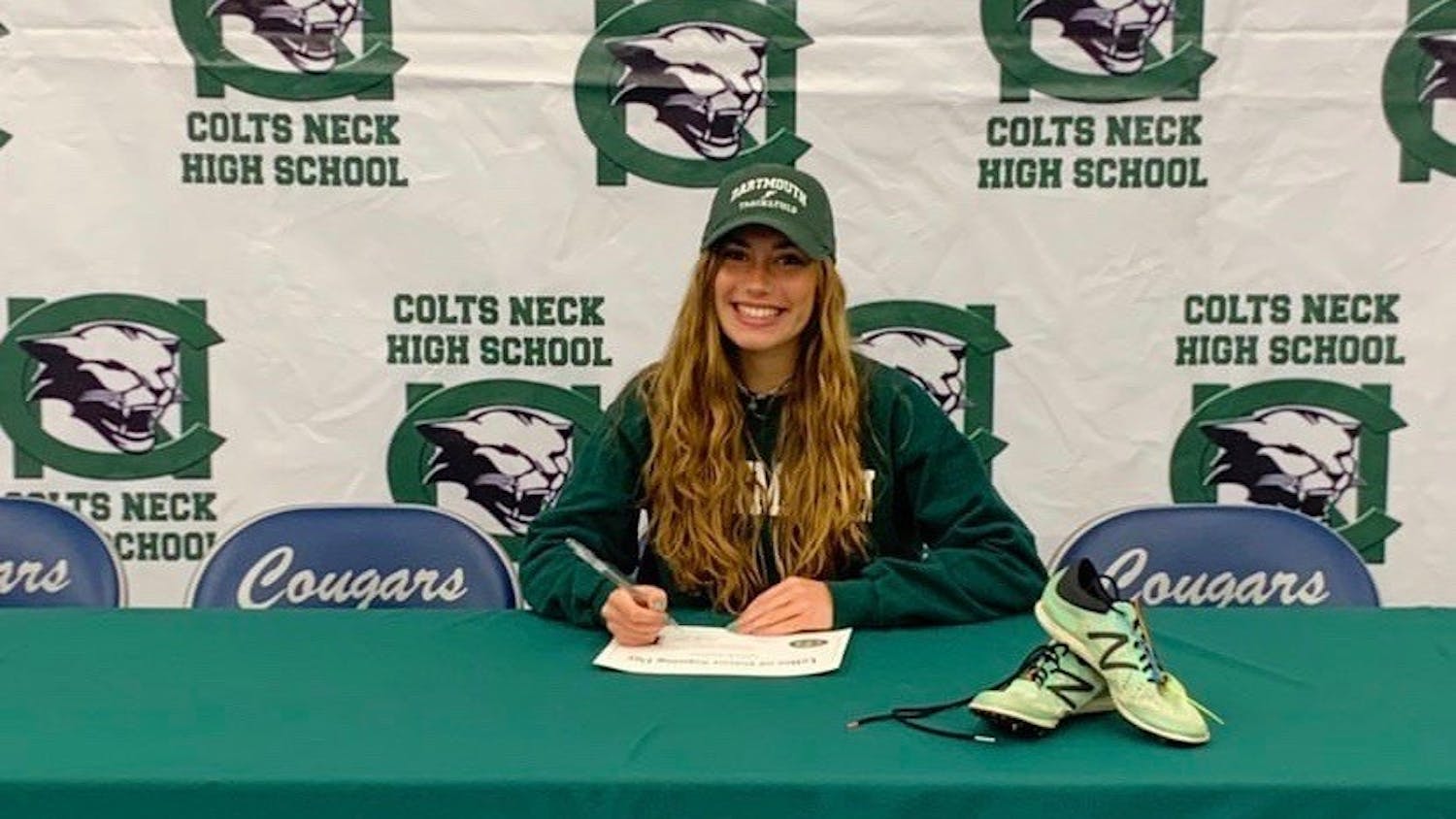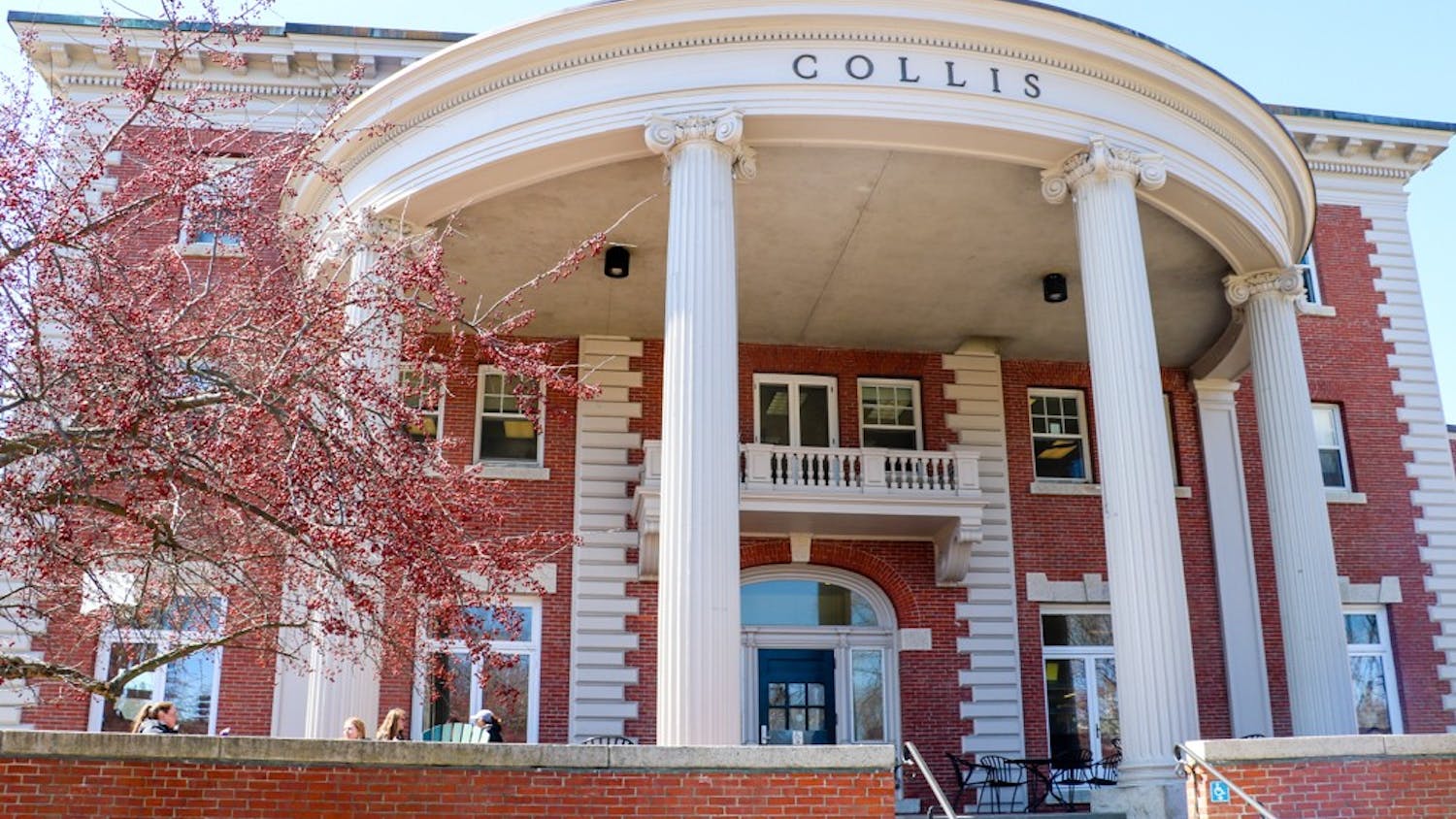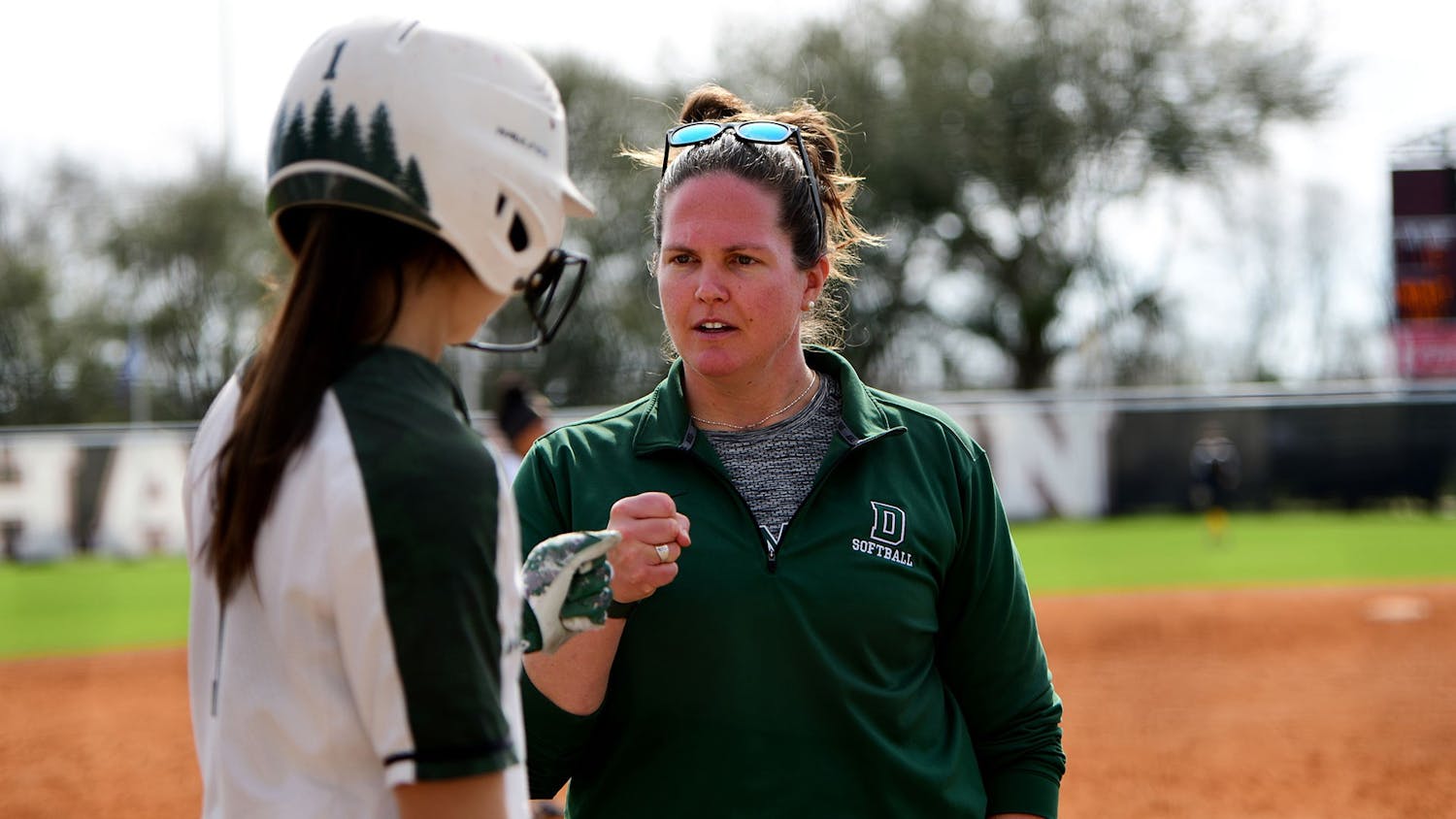As the College gears up for fall term, student groups are adjusting their operations to a new campus reality. Whether service or performance based, clubs face challenges in adapting to COVID-19 restrictions and to the hybrid format of an in-person and remote fall term.
Brittany Cleary ’21 and Kelly Rutherford ’23, the executive director and new member officer of Dartmouth Emergency Medical Services, respectively, both said that Dartmouth EMS plans to focus on helping members with training, maintaining their certifications and fostering community through virtual social events.
Cleary said that whether they will be able to run shifts for the fall term is up in the air, adding that if they were to run shifts, they would need to prioritize member safety.
Dartmouth’s Directing through Recreation, Education, Adventure and Mentoring club, which pairs Dartmouth students to mentor children in low-income communities in the Upper Valley, plans to operate similarly as they did during the remote spring term.
Benjamin Shapiro ’21, co-chair of DREAM, explained that DREAM has tried to continue providing its traditional two hours a week of programming for its mentees through virtual interactions between Dartmouth mentors and mentees.
“The importance of the mentoring program is that we give someone constant in their life for at least four years, and that [mentees] keep receiving that constant and mentorship,” Shapiro said on the importance of continuing DREAM during the virtual terms.
Isabel Wallace ’21, the president of The Dartmouth Sings, a gender-inclusive pop and alternative a cappella group, thinks that a cappella groups will not be able to perform in the fall.
“Singing is probably one of the worst activities in terms of dispersing particles, and it’s really hard to sing with a mask on,” Wallace said. “Even if [the College] did allow us to meet in person, it would have to be in a huge space, probably outside. I don’t see a world in which [the College] would allow us to meet.”
Ujima Dance Troupe, a hip-hop dance group, plans to have in-person team rehearsals by splitting the team into smaller groups and having student directors teach the dances, according to Jelinda Metelus ’22, co-director of Ujima Dance Troupe.
One of the main events for clubs in the fall is holding recruitment opportunities for the incoming class. Student organizations have made varied plans based on whether they will hold recruitment for the fall and whether recruitment will be an in-person, virtual or hybrid model.
Wallace said that according to guidelines from the Council on Student Organizations, a cappella groups are not allowed to hold in-person auditions, so it is unlikely that there will be any form of a cappella auditions for the fall.
“The importance of having auditions in-person and hearing the voice in the room and having that engagement in person is special and a huge part of auditions,” Wallace said.
Depending on changing guidelines from the College, Wallace said that it is possible that a cappella groups would hold in-person auditions sometime this academic year. But if the restrictions on in-person auditions persist, the a capella community might decide to do virtual auditions.
While a cappella groups are unlikely to hold auditions in the fall, Metelus said she thinks that dance groups hope to continue auditioning new members, with necessary modifications.
According to Metelus, Ujima is hoping to hold live auditions by having individuals dance in small groups while wearing masks. Ujima hopes to provide an alternative for students uncomfortable with live auditions by creating a Canvas page in which Ujima would upload a pre-recorded video teaching the choreography and have individuals submit their audition videos.
While DREAM and Dartmouth EMS plan to hold virtual applications, club leaders expressed challenges associated with the virtual process.
For DREAM, Shapiro said that the virtual application process will be difficult because typically, the mentor training is in-person, and mentor-mentee pairings are made based on spontaneous interactions, which will not occur virtually.
Despite the challenges of virtual recruitment, Shapiro said that fall recruitment cannot be postponed.
“The importance of DREAM is to allow [mentees] to have someone always supporting them, [especially] as seniors graduate and other people take off terms,” he said.
While Dartmouth EMS plans to hold a virtual application process, Rutherford worries that a lack of in-person training will add challenges to upholding the medical standard they have as an EMT agency licensed in New Hampshire.
Normally, Dartmouth EMS requires applicants to complete a CPR and first aid certification, which Dartmouth EMS teaches live in the fall. They are considering temporarily waiving the requirement or moving the requirement to an online format.
While clubs are trying to determine their fall recruitment plans, they have made efforts to market recruitment opportunities to ’24s through information sessions and social media.
Dartmouth EMS held an information session last month for ’24s to describe the club’s mission and recruitment process, along with a Q&A session. According to Rutherford, approximately 60 ’24s attended.
Clubs such as Ujima and The Dartmouth Sings have connected with ’24s through engagement strategies on Instagram and Facebook. Ujima has held Instagram story Q&A sessions, member spotlights and videos of members doing TikTok dances.
Ultimately, student groups are awaiting more information from the College about how they can operate for the fall.
Wallace wants the College to provide clearer guidelines on how clubs can operate and “devote more resources to all clubs in general on how to meet virtually successfully,” because she said much of the community at Dartmouth is formed through organizations and clubs. Wallace suggested that COSO hold a workshop on how to “promote virtual engagement during a virtual educational period.”
Even though there is still much uncertainty, Metelus views planning for the fall term as “a fun challenge.” At the end of the day, she said, “I just really miss my team.”





